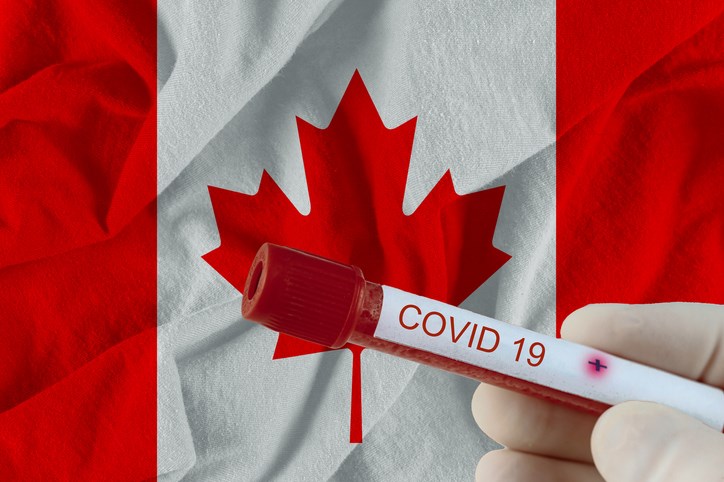Throughout the past 18 months, we have seen how Canadians have modified their immediate expectations about life in their city or town. The country reaches the end of the summer in a bizarre scenario, with a massive proportion of residents continuing to understand the gravity of the situation and a minuscule minority attempting to be noticed as loudly and gracelessly as possible.
When Research Co. and Glacier Media asked Canadians about COVID-19 over the past weekend, more than four in five (84%) consider the pandemic as a real threat, while 12% do not and 4% are not sure.
Our concerns about the pandemic line up well with our political allegiance. More than nine in 10 Canadians who voted for the Liberal Party or the New Democratic Party (NDP) in this year’s federal election (94% and 92% respectively) believe COVID-19 remains a hazard. This feeling is shared by 83% of Conservative Party voters and 74% of Green Party voters. The glaring exception to this consensus is the People’s Party: only 35% of its voters deem the pandemic a real threat, while a majority (58%) do not.
Back in July, when the notion of a pandemic election was being entertained, 61% of Canadians were satisfied with the way the federal government had dealt with COVID-19. When our latest survey was conducted – on the eve of the ballot to select the members of the House of Commons – the number stood at 55%.
As expected, Liberal voters are overwhelmingly supportive of the federal government’s role as a pandemic manager (86%), along with a majority of New Democrats (60%). Support is more nuanced among Greens (48%) and Conservatives (34%) and, as expected, plummets among those who voted for the People’s Party (16%).
In the three most populous provinces, more than half of residents are happy with the pandemic performance of the federal government: Quebec (60%), Ontario (56%) and British Columbia (51%). In Alberta, 44% are satisfied but 53% are dissatisfied.
Throughout the pandemic, the numbers on this question have always been a bit more stable for municipal governments. This month, 60% of Canadians are satisfied with the way they are dealing with COVID-19, down three points since July.
The most compelling story continues to be written by provincial governments. Across the country, 56% of Canadians are satisfied with the way their provincial administration is managing the situation. The regional differences, however, are now astonishing.
This month, at least two-thirds of residents of Quebec (67%) and British Columbia (66%) are happy with the way their provincial administrations have handled the pandemic, down four and six points respectively since the middle of the summer.
In Ontario, in spite of renewed discussions about vaccine passports that merited national coverage, the needle did not move much. Half of Ontarians (50%) are satisfied with their provincial government’s management of the pandemic, down just one point since July.
There is one province that may well be nestled in a different continent. In July, only 46% of Albertans were content with how their provincial administration was managing the pandemic. This month, the proportion dropped to just 26%. This is the lowest number ever registered since we started asking this question in March 2020.
The electoral implications of the dismay that is simmering in Alberta are staggering. Even with more than half of Canadians feeling that the pandemic has been handled properly at the federal level, Prime Minister Justin Trudeau was in no position to command a majority of all cast ballots. Alberta Premier Jason Kenney, whose plan has always been to lead the United Conservative Party (UCP) into the next provincial election, finds his COVID-19 leadership endorsed by just one in four residents of the province. This is a premier whose party was backed by 55% of all voters in 2019.
In July, high vaccination rates began to make Canadians think that the pandemic was in its last days, with 72% of respondents stating that the worst of COVID-19 was “behind us.” Just two months later, the proportion has fallen to 48%. The sense of security that was present just eight weeks ago is gone, as Canadians being to worry about rising hospitalization rates and cancelled procedures.
The findings of this survey provide valuable lessons for politicians of all levels. The premiers, ministers and health authorities of Quebec and British Columbia continue to connect with residents in a significantly better fashion than their counterparts in Ontario. The incumbent Prime Minister of Canada may have realized that competence on one file does not guarantee a safe victory at the ballot box. In Alberta, incompetence will not only make an election win impossible: it may prevent those responsible from having a chance to be contestants.
Mario Canseco is president of Research Co.
Results are based on an online study conducted September 18–19, 2021, among 1,000 adults in Canada. The data has been statistically weighted according to Canadian census figures for age, gender and region. The margin of error, which measures sample variability, is plus or minus 3.1 percentage points, 19 times out of 20.



